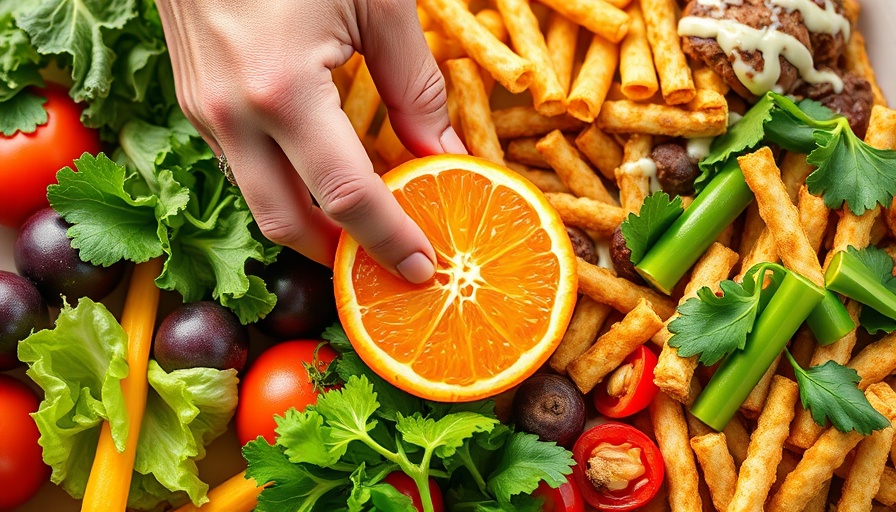
Understanding the Shift from Tracking to Intuitive Eating
In today's fast-paced world, especially for busy professionals in high-stress jobs, the approach to eating often morphed into a numbers game. Tracking macros—carbohydrates, proteins, and fats—has turned into a common method for weighing food choices. However, this habit can become a source of anxiety and disconnection from our natural hunger cues. Learning how to trust yourself around food can not only improve your relationship with eating but also enhance your mental well-being and overall productivity.
The Emotional Weight of Food Tracking
Tracking macros fosters an idea that food is merely data, taking the joy out of eating. For those in demanding roles like CEOs and marketing managers, this can lead to a strict mindset that doesn't allow for flexibility or enjoyment when it comes to meals. Recognizing the emotional aspects tied to food can be integral to restoring a balanced mindset. It’s essential to understand that food is not just fuel—it’s also about pleasure and social connection.
Historical Context: How Did We Get Here?
Historically, dieting trends have oscillated between restrictive eating and fad diets. The rise of the macro-tracking trend can be attributed to a greater understanding of nutritional science, yet it has also given birth to an obsession with quantifying food. Understanding this trajectory can help professionals realize the importance of breaking free from this limiting perspective. Over the years, as people increasingly sought control over their body image, the methods they employed often led them further away from mindfulness and balance.
Delving into Intuitive Eating
Intuitive eating promotes a more relaxed approach to nutrition, allowing individuals to develop a mindful connection with food. This philosophy encourages listening to your body's hunger and fullness cues, rather than rigidly adhering to numbers. For busy professionals, this can also translate to more freedom during work meals or social events. Imagine not having to worry about logging each bite—this shift can lead to reduced stress and a more enjoyable overall eating experience.
Practical Insights: Implementing Changes in Your Daily Life
Transitioning away from macro tracking doesn’t happen overnight. Here are some actionable steps to help make this shift:
- Mindful Eating Practices: Start by incorporating mindfulness into your meals. Focus on the flavors and textures; this can enhance satisfaction and help you tune into your body's signals.
- Dine Without Distractions: Try to eat without devices like phones or computers around you. Create an atmosphere conducive to enjoying your meals.
- Gradual Reduction: Gradually decrease the frequency of tracking macros. Allow yourself to enjoy food choices without having to log every detail.
Counterarguments: Why Tracking Might Still Work for Some
While many advocate for intuitive eating, it’s crucial to recognize that tracking can still hold value for certain individuals—especially those who are just starting their health journeys or those with specific dietary goals. Some may find comfort and structure in macro counting. Respecting these differing perspectives while encouraging a balanced approach can foster inclusive dialogue within the health community.
The Future of Eating: Emphasizing Balance and Well-Being
As the conversation around nutrition evolves, professionals in the health and wellness space are advocating for a shift towards holistic approaches that prioritize well-being over strict dietary guidelines. Emphasizing balance is vital—focusing on how food fits into life rather than sacrificing joy for the sake of unattainable standards. Future trends will likely lean more towards customizable eating strategies that combine intuitive practices with foundational nutritional knowledge.
Conclusion: Embracing Your Body's Wisdom
Learning to stop tracking macros can lead to profound changes, fostering a healthier relationship with food. Rather than viewing eating as a calculated exercise, allow yourself to eat intuitively and joyfully. The benefits will likely extend beyond your plate, positively influencing your day-to-day productivity and mental well-being.
 Add Row
Add Row  Add
Add 




 Add Row
Add Row  Add
Add 

Write A Comment